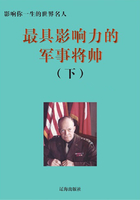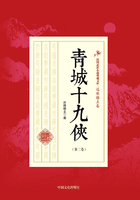IV. That we may understand what the Christian Faith is, we must define Faith in generall, and distinguish it from those other acts of the minde wherewith commonly it is confounded. The object of Faith universally taken, namely for that which is beleev'd, is evermore a proposition, (that is to say a speech affirmative, or negative) which we grant to be true. But because Propositions are granted for divers causes, it falls out, that these kind of concessions are diversly called: But we grant Propositions sometimes which notwithstanding we receive not into our mindes; and this either for a time, to wit, so long, till by consideration of the consequencies, we have well examin'd the truth of them, which we call supposing; or also simply, as through feare of the Lawes, which is to professe, or confesse by outward tokens; or for a voluntary compliance sake, which men use out of civility to those whom they respect, and for love of Peace to others, which is absolute yeelding. Now the Propositions which we receive for truth, we alwaies grant for some reasons of our owne, and these are deriv'd either from the Proposition it selfe, or from the Person propounding. They are deriv'd from the Proposition it selfe, by calling to minde what things those words which make up the Proposition doe by common consent usually signifie: if so, then the assent which we give is called knowledge, or Science. But if we cannot remember what is certainly understood by those words, but sometimes one thing, sometimes another seeme to be apprehended by us, then we are said to thinke. For example, if it be propounded that two and three makes five; and by calling to minde the order of those numerall words, that it is so appointed by the common consent of them who are of the same language with us, (as it were by a certaine contract necessary for humane society) that five shall be the name of so many unities as are contain'd in two and three taken together, a man assents, that this is therefore true because two and three together, are the same with five. This assent shall be called knowledge, and to know this truth is nothing else but to acknowledge that it is made by our selves; For by whose will and rules of speaking the number... is called two,... is called three, &c... is called five, by their will also it comes to passe, that this Proposition is true, Two and three taken together makes five. In like manner if we remember what it is that is called theft, and what injury, we shall understand by the words themselves, whether it be true that theft is an injury, or not. Truth is the same with a true Proposition; but the Proposition is true in which the word consequent, which by Logicians is called the praedicate, embraceth the word antecedent in its amplitude, which they call the Subject; and to know truth is the same thing as to remember that it was made by our selves in the common use of words. Neither was it rashly, or unadvisedly said by Plato of old, that knowledge was memory. But it happens sometimes that words although they have a certaine, and defin'd signification by constitution, yet by vulgar use either to adorne, or deceive, they are so wrested from their owne significations, that to remember the conceptions for which they were first impos'd on things is very hard, and not to be maistered but by a sharpe judgement, and very great diligence. It happens too, that there are many words which have no proper, determin'd, and every where the same signification; and are understood not by their owne, but by vertue of other signes us'd together with them. Thirdly, there are some words of things unconceivable; of those things therefore whereof they are the words, there is no conception; and therefore in vaine doe we seeke for the truth of those Propositions, which they make out of the words themselves. In these cases, while by considering the definitions of words we search out the truth of some proposition, according to the hope we have of finding it, we thinke it sometimes true, and sometimes false; either of which apart is called thinking, and also beleeving; both together, doubting. But when our reasons for which we assent to some Proposition, derive not from the Proposition it selfe, but from the Person Propounding, whom we esteeme so learned that he is not deceiv'd, and we see no reason why he should deceive us; our assent, because it growes not from any confidence of our owne, but from another mans knowledge, is called Faith: And by the confidence of whom, we doe beleeve, we are said to trust them, or to trust in them. By what hath been said, the difference appeares first betweene Faith, and Profession; for that is alwaies joyn'd with inward assent, this not alwayes; That is an inward perswasion of the minde, this an outward obedience. Next, betweene Faith, and Opinion; for this depends on our owne reason, that on the good esteeme we have of another. Lastly betweene Faith and Knowledge; for this deliberately takes a proposition broken, and chewed; that swallowes downe whole and entire. The explication of words, whereby the matter enquir'd after is propounded, is conducible to knowledge; nay, the onely way to know, is by definition. But this is prejudiciall to Faith; for those things which exceede humane capacity, and are propounded to be beleev'd, are never more evident by explication, but on the contrary more obscure, and harder to be credited. And the same thing befalls a man who endeavours to demonstrate the mysteries of Faith by naturall reason, which happens to a sick man, who will needs chew before he will swallow his wholsome, but bitter Pills; whence it comes to passe, that he presently brings them up againe, which perhaps would otherwise, if he had taken them well downe, have prov'd his remedy.
同类推荐
热门推荐
快穿:宿主总不按套路出牌
衍作为一个刚刚出道的系统,自认为非常成功的把时倾坑来跟它签约,它本以为这是个单纯的主,没想到……事实证明它还是涉世太浅。“宿主宿主,你干嘛,这只是一个普通的古代位面,不要冲动。”衍紧张的盯着时倾手中的魔方。时倾埋着头,唇角勾出恶魔般的微笑,她抬起头戏谑的看着衍,“衍,你这么着急做什么,我只是单纯的想玩一下魔方。”衍听后松了一口气,上次在现代位面,这个祖宗就是拿出了这个魔方,所以那个现代位面崩了,害的它被位面管理者请去喝了一杯茶。时倾勾了勾唇角,她想毁掉一个位面,比捏死一只苍蝇还要容易,又不一定要用魔方,衍真是单纯的可爱。于是衍在喝茶这条道路上越走越远。青城十九侠(第二卷)
“现代武侠小说之父”还珠楼主代表了民国武侠重要的一派,他信奉吕祖的伍柳天仙法脉,融合神话、剑仙、武侠于一体,进行高度哲理化、艺术化的想象发挥,尤其是各种剑仙神术、奇幻法宝,显示了天纵奇才的大气魄,为中国小说界的千古奇观,对后世武侠作家影响巨大,几乎无人可以企及,如台湾武侠泰斗古龙,就曾说到他受还珠楼主的影响颇深。《民国武侠小说典藏文库·还珠楼主卷》收录了还珠楼主武侠小说三十余部,本书是其中一部。















